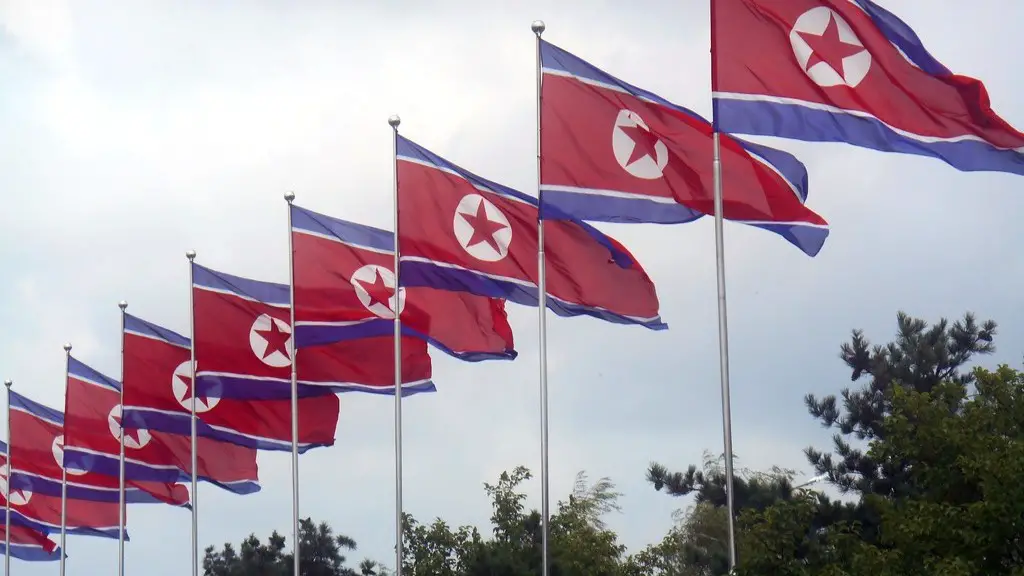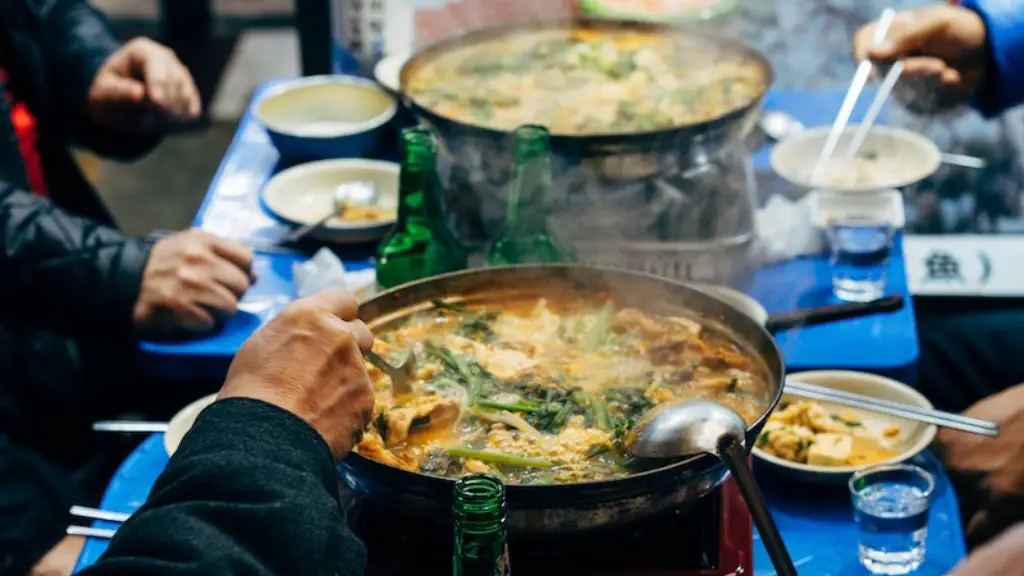Military Service
North Korea is well known for its heavily militarized domestic and international stances, which has resulted in significant military and paramilitary operations within North Korea and the surrounding territories. The North Korean military is estimated to comprise around 1% of the country’s population and is largely considered to be among the most dedicated and well-equipped military services on the planet. As a result, military service has become an increasingly large source of revenue for North Korea, both in terms of manpower and equipment.
The North Korean government heavily supports and encourages military service as a source of income for the nation. North Korean citizens who serve in the military or have served in the military are offered better jobs than their counterparts, as well as access to goods and services that are restricted to non-servicemen. Military service is also a measure of patriotism and loyalty to the nation, which is why those from the most impoverished backgrounds are often chosen as the most promising recruits.
North Korea’s military serves primarily as an offensive arm of the nation’s defense, deploying troops to foreign countries and launching attacks on rival countries. In addition, North Korea also engages in a considerable amount of illegal activities, including arms trafficking, cybercrime, and drug smuggling. These activities bring in large amounts of profits that are then used to finance their military power and operations.
Mining
Mining is another significant source of income for North Korea. Much of North Korea’s mineral resources, such as coal, zinc, and iron, are extracted from the country’s mines. Additionally, the country has proven reserves of rare earth minerals, including tungsten and molybdenum, which have been utilized for various industrial and manufacturing purposes.
North Korea extracts and processes its minerals for sale to various countries around the world, particularly China. Despite the current economic sanctions imposed on the country, the North Korean government is still able to export its minerals through underground trade deals that bypass economic restrictions. This income is vital for sustaining the nation’s economy and expanding its military capability.
Mining has long been an integral part of North Korea’s economy, and it continues to be a major driver of growth as the country seeks to become more self-sufficient and less dependent on foreign aid. In recent years, North Korea has been investing heavily in modernizing its mining sector, expanding its production of value-added minerals and metals.
Tourism
Tourism is another important source of income for North Korea. The country is home to the iconic Mount Paektu, the highest point in the Korean Peninsula, as well as several other impressive tourist attractions. North Korea also has several interesting cultural sites, such as the ancient kingdom of Pyongyang and the Demilitarized Zone (DMZ).
In recent years, North Korea has seen an increase in the number of international visitors to its country. While tourism was previously heavily restricted by the North Korean government, recent reforms have opened the country to foreign travelers. Visitors from the United States, China, and other countries can now visit North Korea on packaged tours.
North Korea also has a growing number of luxury hotels, casinos, and theme parks in the country. These attractions are heavily advertised to foreign travelers, and the North Korean government has even sought to attract wealthy individuals from abroad to its resorts and attractions. In addition, the North Korean authorities have also begun running cheaply priced tours for the national population, which serve as both a welcome distraction for the general public and an additional source of income for the government.
Foreign Aid
Foreign aid is another important source of income for North Korea. The country receives aid from both friendly nations and non-governmental organizations (NGOs) from around the world. This aid is primarily intended to support the country’s development and growth. While much of the aid has gone towards building infrastructure and providing basic necessities such as food and medical supplies, some of the aid has also gone towards propping up the North Korean government and allowing it to sustain power.
In addition to foreign aid, North Korea also has majority ownership in several international companies and business ventures. These companies and partnerships allow the North Korean government to gain additional sources of income, including export and trade revenue. This has allowed the country to further bolster its military might and finance international operations and activities.
Trade
Trade is also a major source of income for North Korea. North Korea trades with numerous countries and exchanges goods and services with them. The country’s primary trading partners include China, Russia, Vietnam, and Mongolia, but it also has formal trade agreements with many other countries. North Korea also engages in illegal trade activities, such as arms trafficking, drug smuggling, and the sale of counterfeit goods.
North Korea is also a major exporter of weapons, primarily missiles and nuclear-related components. The country also exports minerals, chemicals, and other industrial products. Outside of this, North Korea exports agricultural products and seafood, as well as electronic goods.
This income from trade is essential for supporting the country’s military and maintaining economic stability. However, North Korea is currently under strict economic sanctions imposed by the United Nations Security Council, which means that much of its trade income will be limited.
Small Business
Small businesses are another major source of income for North Korea. Domestic businesses, such as restaurants and small shops, are one of the most important sources of income for normal citizens. Though the government does not actively encourage small businesses, it does not have a great deal of control over them. This lack of regulation has allowed people to create and operate a variety of small businesses, including restaurants, shops, and manufacturing plants.
These businesses provide North Koreans with jobs and an additional source of income. In addition to providing basic necessities, the small businesses also contribute to the domestic economy by providing goods and services to the citizens. Many of these businesses also export their products abroad, allowing them to earn foreign currency.
Human Trafficking
Human trafficking is an illegal but increasingly common source of revenue for North Korea. The regime mainly traffics citizens to other countries, primarily China, to work in abusive and dangerous labor conditions, often under false pretenses. North Korea also has a history of kidnapping foreign individuals and taking them to North Korea for forced labor.
Human trafficking is illegal and condemned by the international community, but it remains a major source of revenue for North Korea. The regime profits immensely from the trade, as the abducted individuals are forced to work for extremely low wages, often without their consent. In addition, the proceeds from the trafficking are used to fund the regime’s expansionist policies.
Weapons Exports
Weapons exports are another major source of income for North Korea. The country is known for its development of advanced ballistic missiles and nuclear weapons, which it exports to other countries. North Korea has sold its weapons to countries such as Iran, Syria, and Pakistan. It is also believed to have provided its weapons to several armed rebel groups around the world.
The proceeds from these weapons exports are a major source of income for North Korea, and the money is used to fund military operations and development programs in the country. This income is essential for sustaining the country’s military strength and ensuring its security against foreign threats.
Organized Crime
Organized crime is another significant source of income for North Korea. Criminals in the country engage in a variety of activities, such as smuggling illegal migrants and trafficking drugs and weapons. These activities often involve bribes and payoffs to government officials, and the profits are often used to fund the regime’s military operations and other activities.
Organized crime has become a major source of revenue for North Korea and continues to thrive despite international sanctions. North Korea has been accused of sponsoring organized crime groups abroad, as well as of directly participating in a variety of criminal activities. The North Korean government has also been linked to cybercrime and online fraud, which have resulted in huge losses for companies and individuals around the world.


